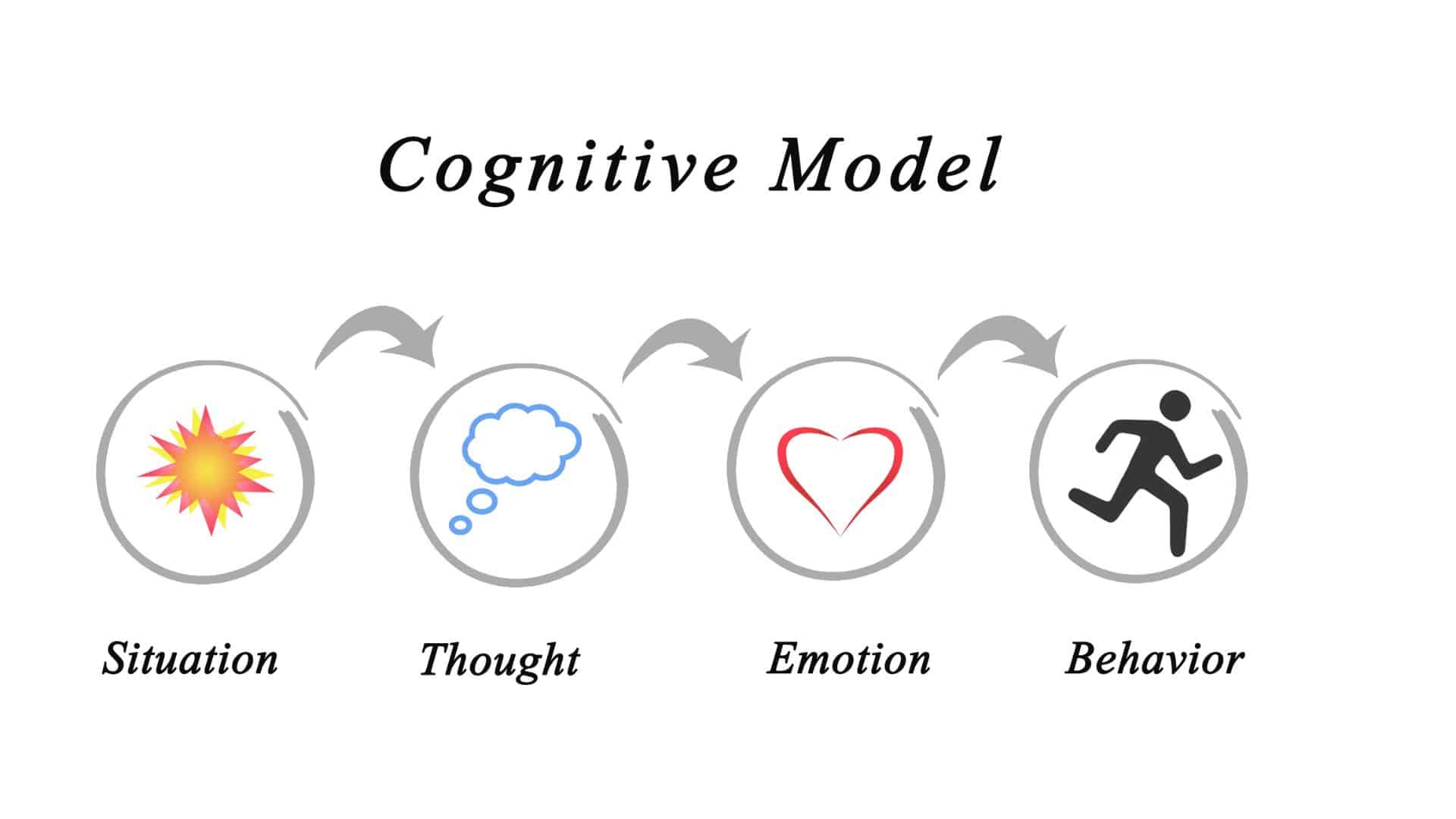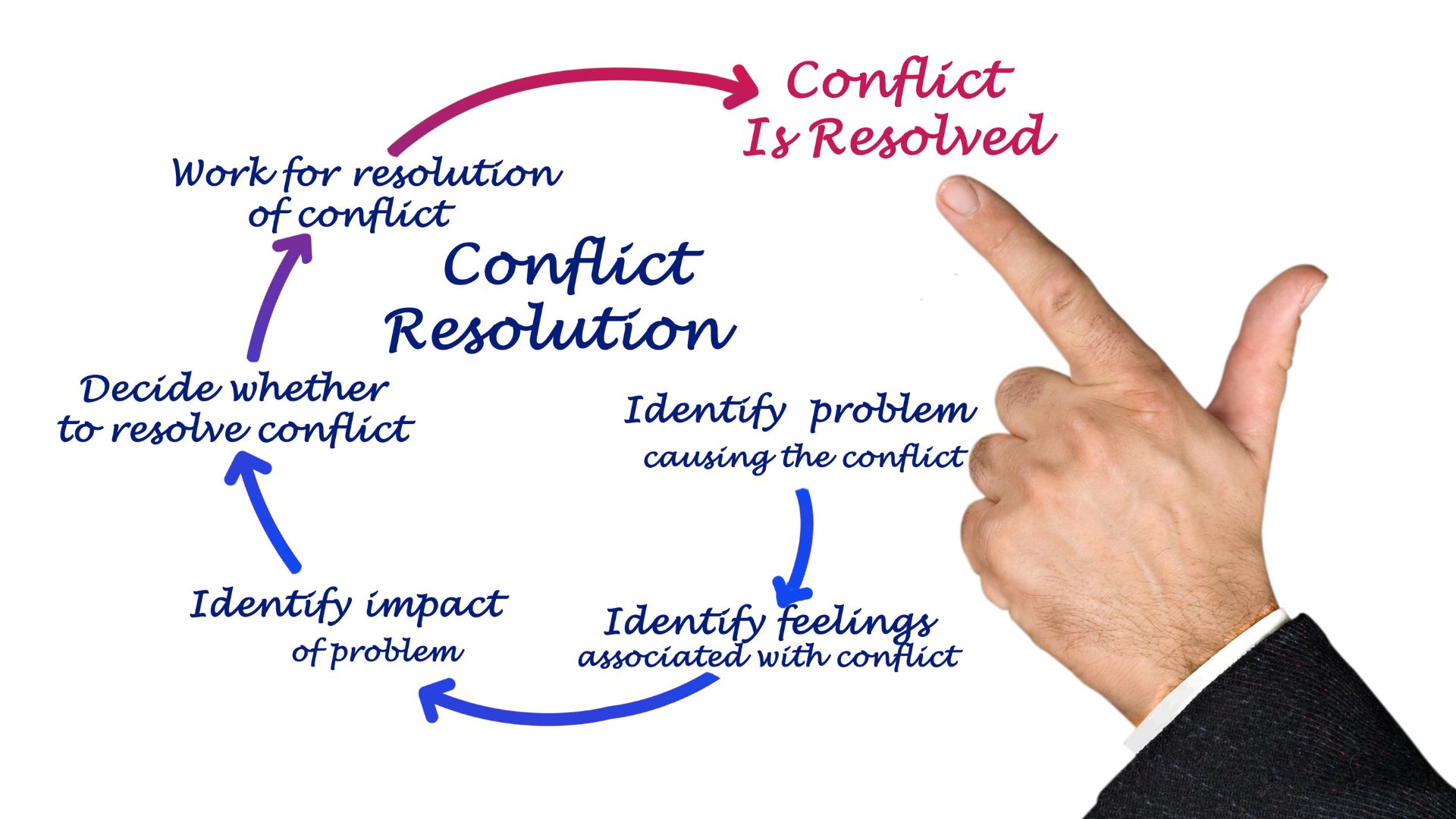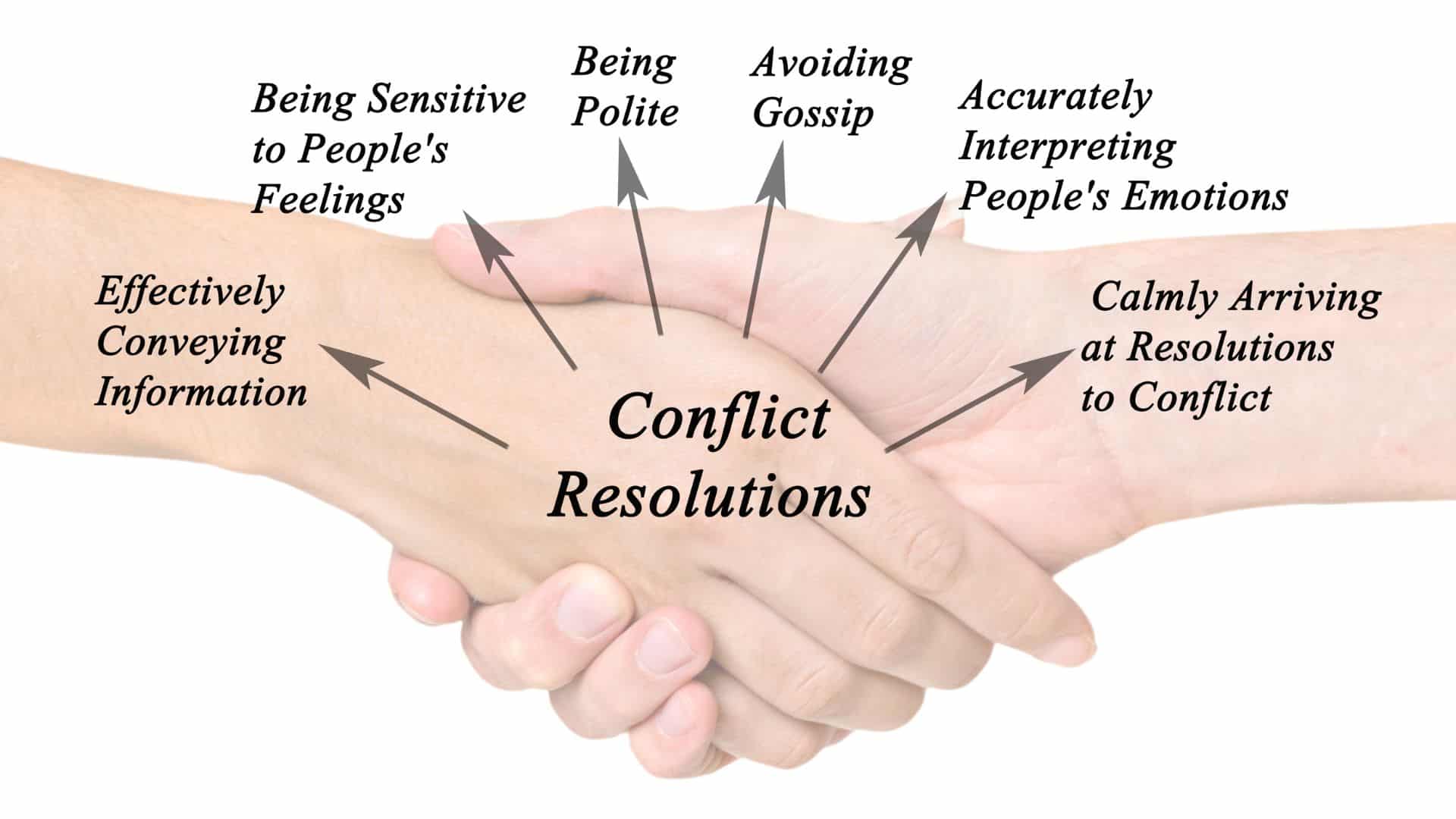

Mediation Encourages Collaboration, Cooperation and Mutual Respect
Family and Divorce Mediator in Los Gatos
Leyla Balakhane is a distinguished Los Angeles divorce mediator, facilitator, coach and trainer serving the Los Gatos area and specializing in high conflict divorce law. She is a member of the Los Angeles County Bar Association LACBA Arbitration panel where she arbitrates family dispute concerns fees and costs. With respect to COVID19, we our now offering online family and divorce mediation services.
Contact Leyla Today!
Going through a divorce can be emotionally taxing extremely costly and legally confusing. Choosing divorce mediation can help alleviate those challenges as mediators support individuals in processing any issues that arise, all while maintaining the autonomy and agency of those involved. If you are looking to file for divorce, mediation will create a space for you to find amicable resolutions with less conflict and legal costs.
Mediation Blog Posts

How to Make Your Divorce as Expensive as Possible

Successfully Navigating a Divorce: Tips for Avoiding Common Mistakes
Going through a divorce can be a challenging and overwhelming process. It’s crucial to be aware of potential pitfalls and mistakes that may arise, whether you choose mediation or litigation. Mistakes and oversights can happen during the process, so it’s essential to approach it with care and caution, as the decisions you make can have a significant impact on your future.
To make the divorce process smoother, it’s crucial to avoid common mistakes. Couples may encounter more challenges if they pursue litigation instead of mediation, which can have serious legal implications.
Let’s take a look at some of the most common mistakes that couples make during divorce and how to avoid them. By knowing what to avoid, you can achieve better outcomes and navigate the process more smoothly.
Oversharing Details of Your Divorce on Social Media
During a litigated divorce, it’s not uncommon for couples to inadvertently make mistakes that can impact their case, such as discussing private details related to their situation on social media. It’s important to remember that anything you post online may be taken into account by legal counsel and the court when making decisions about child custody, spousal support, alimony, and other important matters. Remember, your soon-to-be ex-spouse may use whatever you say against you during a litigated divorce.
Securing Your Financial Future
During a divorce, it’s crucial to document all of your assets and liabilities to prevent delays. Don’t forget to include important financial documents, such as tax returns, bank statements, and property deeds. Keep everything organized in one place to your divorce lawyer ensure a smooth process.
The Importance of Researching Your Rights
It’s easy to get overwhelmed by the legal aspects of a divorce, but it’s essential that you understand your rights. Make sure you know what laws pertain to your situation and read up on any changes that may have been made since you originally filed for divorce. Doing research ahead of time can help you ensure that all decisions made throughout the process are in line with your rights and best interests.
The Importance of Seeking Professional Advice
Divorces can be complicated and trying to navigate them without professional guidance can be difficult and time-consuming—not to mention risky if there are important details that are missed or misunderstood along the way. Make sure you consult with an experienced professional who understands the nuances of family law before proceeding with any filings or paperwork related to your divorce. This will help ensure that everything goes as smoothly as possible and minimize potential risks along the way.

Maintaining Emotional Balance: How to Make Sound Decisions During Divorce Proceedings
Divorces are often deeply emotional experiences, and it’s completely understandable to feel overwhelmed during this challenging time. However, it’s important to keep emotions in check and not let them hinder your ability to make smart decisions.
When faced with important choices, it’s essential to remain logical and focus on finding solutions that will benefit everyone involved in the long run. While it’s important to acknowledge and process your emotions, decisions based solely on anger or resentment toward other parent may not serve either party’s best interests in the long run.
Remember, the decisions you make during this time can have a significant impact on your future, so it’s important to approach them with care and consideration for everyone involved. By taking a compassionate and level-headed approach, you can navigate this difficult process with greater ease and find a resolution that works for all parties involved.
Not Planning Ahead for Post-Divorce Life
It’s common for couples going through a divorce to focus solely on the present and not think ahead to their post-divorce life. However, planning for the future is a crucial part of the process and can help ensure that you have a stable and secure financial footing once the proceedings of attempting divorce are over.
While it may seem overwhelming to think about your life after the divorce, taking the time to plan ahead can have significant benefits in the long run. This includes considering how your children will be affected by the divorce and making plans to support them accordingly.
Approaching Settlement Negotiations with an Open Mind
Divorcing couples tend to not be receptive or open minded when it comes to agreements reached during negotiations. It’s important to remember that both spouses need to be willing to compromise in order for things to work out in everyone’s favor. Failing to be open minded about potential solutions can lead to further complications down the line and could potentially delay the resolution of your divorce case. Instead, focus on reaching an amicable solution that works for everyone involved and take into consideration all options presented during negotiations.
Maximizing Your Tax Benefits through Understanding Tax Implications
Divorce typically results in substantial fluctuations in both spouses’ income levels, making it critical to comprehend how these changes can impact tax payments throughout the year. It is also essential to consider any possible tax credits available due to new filing statuses or other changes related to the divorce process.
Making Uninformed Decisions About Property Division
When dividing marital property between two people who are no longer married, emotions often get in the way of making sound decisions about what is best scenario for those involved. Spouses become fixated on something they feel entitled to without considering its real value or cost over time. An experienced divorce mediator can help couples make informed decisions about division of marital assets.
Maximizing Your Financial Confidence Through Proper Account and Document Updates
One of the first things people tend to overlook during a divorce is updating their accounts and documents, including bank accounts, credit cards, insurance policies, wills, mortgage agreements, and more. Failing to update these documents can leave both parties open to legal liabilities down the line. Make sure all relevant accounts are updated with both yours and your spouse’s current information before finalizing any divorce agreements.
Understanding Legal Terminology
Before taking that next step, it’s important for divorcing couples to familiarize themselves with various aspects of family law in order to understand what the process entails. Not understanding legal terminology can lead to misinterpretations or misunderstandings about terms that could have serious ramifications later on down the road such as spousal support payments or child support obligations.
Strengthening Your Relationship Through Open and Honest Communication
During a divorce, communication becomes even more critical, particularly when children are involved. Being honest and open about your feelings, needs, and desires is essential throughout the entire process to avoid misunderstandings and quickly resolve any issues that may arise. Remember, failing to communicate openly and honestly can prolong the process, causing unnecessary stress and expenses. Let empathy and compassion guide your conversations to ensure a smoother transition for everyone involved.
Failing To Understand Your Conflict Resolution Style
Navigating difficult situations with ease may be challenging at times. Most couples have a default conflict management style they fall back on when faced with disagreements. If not recognized, these conflict styles can get in the way of approaching matters in a more constructive manner. Understanding your own conflict style, along with your spouse’s, can help you navigate those difficult conversations with more compassion, and divert any negative feelings that would otherwise impact the final outcome.
The Benefits of Hiring a Family Law Mediator
When going through a divorce, it’s important to remember that you are dealing with your future—your finances, your children, and your belongings. Any decisions made now will affect you down the line. For these reasons, it is essential to hire a family law mediator who can help guide you through this difficult time.
The decision to get divorced is never an easy one, but understanding how to best approach the process is key in minimizing stress while ensuring fairness throughout. By avoiding some of the common divorce mistakes and mistakes outlined here, you can set yourself up for success in ensuring everything goes as smoothly as possible—while still protecting your rights and interests throughout the process.

Empowering Your Journey with Balakhane Mediation: How Mediation Can Benefit You
By seeking guidance from experienced family law mediator professionals, you can navigate the divorce process with confidence and ensure that you receive the attention you deserve. These professionals possess the knowledge and expertise to help you achieve fair outcomes that benefit everyone involved.
From choosing a mediator that is experienced and reputable to preparing essential documentation to ensure efficiency throughout the process, it’s important to be prepared on every step of the way.
At Balakhane Mediation, we understand the power of language and the crucial role it plays in conflict resolution. We believe in using a compassionate and empathetic communication style to create a safe and supportive environment for all parties involved.
Balakhane Mediation can provide you with insight, emotional support, and guidance every step of the way through your divorce journey. Contact us today to schedule a complimentary mediation consultation so that we can assess your needs and embark on this journey together.

What is Your Conflict Resolution Style? Navigate Difficult Situations with Ease by Understanding Conflict Styles
Undergoing a divorce can be one of the most emotionally challenging times in a person’s life. While conflicts are inevitable during this difficult time, they are not insurmountable.
Whether you’re considering divorce mediation over litigated divorce, or are already preparing for a California divorce mediation, it’s important to be mindful of the different conflict management styles you and your spouse can use to make the process as smooth and efficient as possible.
When faced with disagreements, most couples have a default conflict management style they fall back on that, if not recognized, can get in the way of approaching them in a more constructive manner. Understanding your own conflict management style, along with your spouse’s, can help you navigate difficult conversations with more compassion, and divert any negative feelings that would otherwise impact the final outcome.
Conflict is a natural and inevitable part of our lives. No two people will always agree on everything, and that can lead to uncomfortable situations, especially without the proper conflict management skills in place. However, not all conflict is bad! It’s often how two sides come together to create something new and better than what either had before that makes all the difference.
Enter the Thomas-Kilmann Conflict Mode Instrument (TKI), a conflict management assessment tool developed by Kenneth W. Thomas and Ralph H. Kilmann in the early 1970s, designed to measure an individual’s preferred method of handling conflicts between themselves and others, as well as their ability to adapt to different situations when necessary.
This blog post will provide an overview of the various styles of conflict management and how they can be applied to divorcing couples looking to reach an amicable resolution with their spouse.

The Thomas-Kilmann Conflict Mode Instrument (TKI)
What Is TKI?
The TKI allows us the opportunity to recognize the different styles of behavior when faced with conflict, while providing guidance on how to best respond in these situations. The model measures five conflict management styles – competing, avoiding, accommodating, collaborating, and compromising – and helps identify which strategy is most appropriate for a given situation. It also provides information on how effective each strategy might be in resolving a conflict.
How can couples best navigate difficult situations with ease?
There are a variety of approaches to conflict management that can be implemented before, during, and also after the divorce mediation process.
Let’s break down the main conflict management styles and look at how they can be implemented when going through a divorce.
There are a variety of conflict management approaches for navigating the challenges that arise throughout the divorce process. Depending on your goals, the nature of the conflict, and various circumstances, these conflict management styles may be implemented.

5 Conflict Management Styles to Help Alleviate Conflict
Avoidance as a Conflict Style
Depending on circumstances that may arise, this conflict management style aims to alleviate disagreements by avoiding issues altogether in order to maintain peace and harmony between everyone involved.
This avoiding conflict management style is often used in cases where there is no clear solution or if the situation could potentially become more heated if discussed at length. It involves avoiding confrontation altogether by simply refusing to engage in discussions about difficult topics or decisions.
This type of approach works well in situations where emotions are high and there is potential for things getting out of hand quickly.
Benefits of the avoiding conflict management style
This specific conflict management style may be beneficial during the following scenarios:
- When issues and disagreements seem trivial
- When neither spouse has power or can’t change
- When damages as a result of conflict outweighs its benefits
- In situations where one or both spouses need to reduce tensions, cool down, or regain composure
- When gathering information in a given moment is more crucial than making immediate decisions
- When disagreements and conflicts can be resolved more effectively with others
- When issues are symptomatic or tangential
In some cases, avoiding conflict altogether is the best way to resolve a dispute between two individuals. Avoidance doesn’t mean running away from difficult conversations; rather, it means taking some time away from each other in order to evaluate and process what has been discussed before coming back together with a calmer approach and better understanding of the situation at hand.
A break can allow both sides to clear their heads and come back with more clarity and perspective on how they want to move forward.
However, it’s important to remember that avoidance does not equate to resolution; rather, it simply delays the inevitable until both spouses are ready to have a civil discussion about the matters at hand.
Given the nature of this conflict style, it is essential to assess whether it is the best option in terms of how to manage conflicts that arise.
The main problem with this conflict management style is that it tends to lead to passive-aggressive behavior and resentment, which only serves to exacerbate any challenges at hand. This approach only serves as a temporary fix that may result in greater issues later down the road if left unresolved.
If you or your spouse find yourselves using this approach on a regular basis, consider speaking with a professional family therapist or family law mediator who can help you work through your disagreements in a more civil and constructive manner.
Accommodating Conflict Management Style
The accommodating conflict style involves one of the spouses feeling like they are sacrificing their own needs in order to keep the peace within the relationship. Instead of standing up for themselves, they choose instead to give in so that there won’t be any further tension.
This accommodating style may be used when someone feels overwhelmed by a situation, or simply wants to implement an avoidant conflict style in order to avoid confrontation altogether.
Although accommodating someone else’s needs may seem like the easiest way out at first glance, it usually leads to feelings of resentment down the line as one spouse begins feeling like they are being taken advantage of or that their needs are being ignored altogether.
This type of approach can be helpful in some situations, but it can also lead to resentment over time if one spouse’s needs are not taken into consideration enough by their partner as they are making efforts towards resolving conflict.
Competing Conflict Style
The competing style of conflict management is a win-lose approach that aims for one person to gain while the other person loses. In this case, one or both of the spouses emphasizes their own needs and disregards the needs of the other person, ultimately leading to negative results and uncompromising outcomes.
This type of conflict style is often characterized by a person’s desire to win an argument or prove that they are right. It maintains the mindset of winning at all costs and is best used in emergency situations or when a decision must be made quickly.
The competing conflict management style is not an ideal approach to resolving conflicts as it makes a significant impact on the relationship between the spouses and takes on more of a firm stance in the negotiation process. It disregards the underlying concerns of couples and can result in other conflicts that could have otherwise been avoided, and ultimately leads to hurt feelings and strained relationships.
If you implement this approach throughout the divorce mediation process, you may get what you want in the short term, but it will likely cause more tension and animosity in the relationship between you and your spouse in the long term. Conflict management styles based on this approach may end up causing a lot more damage in the long run, and generally do not reduce conflict, but rather escalate it.
Collaborating Conflict Style
The collaborative style of conflict management seeks to resolve conflicts through means of collaboration and cooperation. This approach looks at all aspects of a disagreement and encourages couples to find solutions that are mutually beneficial. In this style, couples can focus on finding common ground, rather than on who is right or wrong.
A collaborating style to conflict resolution also encourages both spouses to work together to identify the underlying causes of their differences and explore ways to address them.
This conflict resolution method involves both sides working together towards a mutually beneficial solution by sharing ideas, thoughts, and feelings about different aspects of their dispute. Collaboration allows both people involved in the conflict to feel heard while also having an active role in crafting a solution that works for everyone involved. It can also help build trust between two people who may have had difficulty communicating in the past.
Unlike most other conflict management styles, the collaborating style is a win-win approach where both spouses work together to find a mutually beneficial solution that meets everyone’s needs. It involves active listening from both sides so that each person can clearly understand the other’s point of view before reaching an agreement that works for everyone involved. In order to do this effectively, there must be mutual respect and open lines of communication and transparency throughout the entire process.
Compromising Conflict Style
Considered as one of the most popular strategies for resolving conflicts in divorce cases, the compromising conflict management style is a middle-ground approach which involves meeting halfway and finding solutions that both spouses can live with even if neither one gets exactly what they want out of the outcome. During negotiations, it requires couples to compromise so that each person is able to express their interests without feeling triggered by the other side’s comments or requests.
A compromising style to conflict resolution can help resolve difficult disputes while still allowing couples to maintain some degree of satisfaction with the outcome and achieve a win-win solution, and divert what could have amounted to a lose-lose scenario.
Compromise works best when there are two reasonably flexible individuals who are willing to meet halfway on their issues. The goal here is to find areas where you and your spouse can benefit from a solution.
Compromising allows both sides to meet somewhere in the middle and reach an agreement that works for everyone involved.
Benefits of Compromising Conflict Management Style
A compromising style of conflict management is essential to consider under the following circumstances:
- When considering which goals are moderately important
- When divorce becomes a “power play” and spouses with equal power are strongly committed to mutually exclusive goals
- In order to achieve a quick solution or temporary settlement when complex issues arise
- When matters become time consuming and spouses need to arrive at expedient solutions under pressure of time
- Under circumstances where competition or collaboration fails
Whether you utilize the approach of a competing conflict management style, accommodating style, avoiding style, collaborating style or middle ground compromising style to conflict resolution, communication is key to the success of your divorce mediation process! It’s essential to not only to express your own thoughts and feelings, but also listen carefully and consider your spouse’s views in order to understand them.
When difficult situations are approached with respect and open-mindedness, resolutions are made more quickly and efficiently than if utilizing a competing style of conflict resolution. Divorce can be challenging enough without adding unnecessary stress; use these conflict management techniques as tools for creating a peaceful environment during this challenging time in your life!

The Balakhane Mediation Method to Approaching Difficult Situations
At Balakhane Mediation, we provide a safe space for couples undergoing a divorce. From facilitating dialogues for deeper understanding, and thinking of new ideas and creative solutions towards handling disagreements— we strive to help couples with conflict resolution efforts that will lead to their final solution and win-win situation.
If you’re interested in taking the next step in the divorce mediation process, Balakhane Mediation offers a complimentary mediation consultation session designed to help couples avoid conflict and mitigate unpleasantness through thorough assessment of each person’s needs.
Get started today by contacting 424-235-4173 and allow us to help you plan the next steps in the divorce mediation process.
Los Gatos Divorce Mediation FAQ
Questions regarding mediation in Los Gatos are normal; we have compiled some frequently asked questions and provided answers below:
Divorce mediation is a popular process used by a couple in divorce to avoid a costly and lengthy divorce trial. With the assistance of a neutral third-party mediator, agreements are reached on all divorce issues: division of property and debts, spousal support, parenting issues including time-sharing, child custody, and child support. Since all agreements are made in mediation, spouses never have to enter a courtroom and can avoid the conflict and stress of litigation.
In mediation, spouses make their own voluntary decisions and personalize their divorce terms to meet both of their needs. The choice to settle the case and avoid court is always up to the spouses and which process will work best for them. Spouses tend to be more satisfied with the mediation process compared to litigation due to several advantages including the fact that spouses can discuss their interests in mediation and therefore have the opportunity to have their interests met.
Mediation can occur in person, over the phone, and through video conference. Depending on the circumstances, mediation meetings can happen with the mediator and both spouses together (often called “joint session”). Mediation can also involve the mediator meeting with each spouse privately (often called “private caucus”) to discuss the needs of each party and find a way to help the spouses come closer to common ground.
Unlike the public nature of the litigation process in court, in most states, “mediation confidentiality” is protected by law. This means that all communications in mediation and disclosure of documents are confidential.
In comparison to the unknown timeline of a full-scale divorce suit that will end up in a trial, the length needed to complete mediation will be clear early on in the process. The average length of mediation usually involves at least three to four two-hour mediation sessions, spread out over at least a month or two. More complex cases can take between four to six months to complete. In addition to the timeliness of mediation, you will never have to feel as though you and your children’s futures are in the hands of someone other than you and your spouse.
A mediator is unlike a judge for several reasons. Most importantly, a mediator does not decide who is in the right or the wrong but rather focuses on finding a solution that meets the needs and desires of both spouses. A mediator will not impose his or her conclusions about how the issues should be solved. If necessary, a mediator might offer suggestions, but the most effective mediators will enable the spouses to generate their own solutions and agreements. Mediators do not make any kind of ruling on the case so spouses can spend less time trying to convince the mediator that they are right and instead focus on creating a joint resolution.
Before committing to using the services of a particular mediator, spouses should confirm that the mediator has extensive training beyond the minimum requirements, has considerable experience mediating, is dedicated to helping spouses get the most out of the process, and is the right fit for the personalities involved.
Being a lawyer is not a requirement to be a mediator. Even if your mediator is a lawyer, he or she cannot be your lawyer because a mediator must remain unbiased. For mediation to be successful, it is critical that participants feel comfortable with their mediator’s ability to remain neutral. It is very important to seek the advice of your own qualified and trusted attorney, who will look out for your best interests, before committing to a settlement agreement.
Every mediator has a different approach to the process so all participants must be comfortable with the mediator’s personal style. Some mediators use an evaluative style: freely evaluating the strengths and weaknesses of each side’s case (in private sessions), to help them assess their alternatives and make wise choices in the mediation. Other mediators are more facilitative: refraining from asserting their judgments and instead facilitating a conversation that draws out the assessments of the spouses themselves. Transformative mediators are somewhat similar to facilitative mediators in that they are focused on the spouses’ needs and points of view. In transformative mediation, the spouses control both the process and the outcome. A creative mediator will be able to use any or all of these approaches when appropriate and may even ask the participants for their input regarding their desired approach. An effective mediator will manage the process in a way that moves participants forward, toward a resolution, with the spouses’ own unique goals and interests as a guide.
When searching for the right fit, most mediators will be happy to spend a few minutes speaking with a potential client at no charge to explain the process, answer any questions the client may have, and allow the client to determine whether the mediator would be a good fit.
Mediation is a private and confidential process; another advantage of divorce mediation. Spouses meet with their mediator as often as agreed upon to finalize an agreement they are happy with, with no public record attached. At the end of the process, the final agreement is taken to court to make it an official order, making that document the only public record of the divorce. The value of assets and debts can even remain private in your final agreement so that they are not explicitly shared in public records. One exception to privacy includes when divorce mediation is court-ordered. In that event, all matters prior to mediation will be public record.
Online mediation is fast, efficient, and effective and may be more accessible for some couples. The sessions can occur over a multitude of video conferencing services like Zoom or Google Meet and if needed, via conference call. The mediator will engage in mediation as though they were meeting with the couple in-person and focus on facilitating a discussion geared toward coming to a mutually acceptable agreement. As mediation comes to a close and a final agreement has been written, documents requiring signatures can usually be signed and transmitted electronically.
Conducting divorce mediation sessions remotely provides several benefits for divorcing spouses, including:
- Accessibility: Conducting a online divorce mediation session can be more comfortable than meeting with your spouse and mediator in-person. All you need is a phone or computer anda stable internet connection. An added plus is that it is generally easier to set an appointment that works for all parties involved because they can be squeezed into the middle of a busy day without having to spend time commuting.
- Convenience: Couples are able to conduct sessions from work, at home, while traveling, or from wherever they might be. Given you can avoid traffic, travel costs, and looking for parking, couples can save lots of time. Online divorce mediation is especially convenient for those who travel frequently and/or have moved out of town, but still want to mediate their divorce settlement.
- Comfort: Some spouses want to use divorce mediation butbeing in the same room as their spouse can bring up feelings of anger, distress, and pain. Online divorce mediation has the power to mediate those by helping couples (literally) maintain their distance while they work out their differences from a comfortable and safe space.
- Increases options: If you live in a smaller town or rural area, you may find it difficult to find a divorce mediator in your area. Online divorce mediation provides couples with the opportunity to find a mediator that meets their needs without having to travel a long distance or settle for the closest mediator.
California is a community property state, which means that any income or property earned by either partner while married will be split equally between them during the divorce. California is only one of nine states that have community property laws. Decisions made in court will vary significantly depending on which state or country jurisdiction the agreement falls in at the time of the divorce.
Mediation helps keep courts out of the division of property and instead places the decision in the hands of the couple and family. Through the help of an unbiased third-party mediator, couples experiencing a separation can resolve their issues regarding the division of property and debt without having to resort to a court’s decision-making process.
Debt division is included in the property division process and varies based on community property or equitable division status. It is common for couples to have accumulated high amounts of unsecured debt, with little asset acquisition during the marriage. In these cases, the debt division process is more complicated and if unresolved between the spouses, the courts will determine the division based on rationales provided by state law.By partaking in mediation, couples have the power to decide how they would like to divide debt and other liabilities and obligations without having to involve the court in the decision-making process.
Laws determining whether or not one party will be required to make support payments to the other party once divorced and how long said payment should be made vary by state. Community property states like California consider a wide range of factors that can be found in the Family Code Section 4320. Mediators can help reduce the conflict and tension that typically surround this issue and support both spouses in collaborating peaceably without the need to go to court.
Separating from your partner can be a costly process. In mediation, you control that cost. Divorce mediation is not nearly as expensive as a divorce trial or custody suit as a trial alone can cost thousands of dollars per day. Most family and divorce mediators charge by the hour and only charge for the time spent working on the case. Mediation generally costs between five and ten thousand dollars whereas one divorce hearing alone could cost that much. Having a separation agreement already prepared before beginning mediation can lessen the costs of mediation even further.
The money saved by choosing mediation over an exhausting divorce trial can be put towards children’s college tuition or even a few relaxing beach vacations to create lifelong memories with your loved ones.
Before going into a mediation session, all parents are encouraged to go through the parenting tools and resources on UpToParents.org like the Divorce Mission Statement and utilize the books and podcasts found on FocusOnTheFamily.com. The parenting site CoParenter.com provides easy-to-use tools to draft successful letters to your co-parent and to develop and tweak your parenting plan. It is also recommended that parents use the suggested age-appropriate parenting plans provided by the Orange County Superior Court and the communication tools of OurFamilyWizard.com as resources to help your children through this process.
When a child experiences a high-conflict divorce, it can leave lasting psychological and emotional harm. Although it may not be the parent’s intention, children often feel forced to choose sides. Parents may even actively try to alienate the child from the other parent without realizing the impact it can have on the child. As a parent, it is natural to want to fight to protect your relationship with your child but often it is the endless fighting that does the most harm.
Mediation reduces the likelihood of childhood trauma from divorce by reducing conflict, providing positive approaches to family communication, and demonstrating collaborative decision making. Parents are encouraged to consider mediation because of benefits including but not limited to:
- Reducing stress for the child. Children will endure significantly less psychological and emotional stress when not having to choose sides or witnessing parents fight.
- Ensuring positive relationships between parents. In mediation, parents are allowed to create a parenting plan that works for everyone involved, particularly the child.
- Laying the foundation for long-term parental collaboration. Filing for divorce does not mean that parents should no longer work together to raise the child. Mediation lays the groundwork for parents to work together long after the divorce is finalized.
- Preserving money for the child. A drawn-out battle can be expensive and time-consuming. Money is better preserved when put towards directly caring for the child.
- Allowing you to spend more time with your child. The time spent in the courtroom during a divorce trial can be better spent with your child. Mediation is often a time-saver.
In countries where family mediation is an accepted adjunct to litigation, research has shown that in cases where mediation is utilized, there is greater potential for the development of optimal co-parenting relationships as well as ongoing parental cooperation. Research also shows that agreements reached through mediation are more likely to be adhered to by the parents. Parents’ ability to develop customized outcomes that meet their and their children’s unique needs and requirements during mediation are more likely to succeed in implementing the terms of the agreement.
Once your final agreement is presented before a judge and the seal has been set on your mediation agreement, it is considered a legally binding contract. For example, if you run into problems with parenting time, real estate conflicts, or any other point of contention after the divorce is finalized, any enforcement agencies involved in resolving those conflicts will refer to this order as law. Although the mediation agreement is a more informal and less expensive process, it is just as serious and legally binding once the process is complete.
Balakhane Mediation is now offering Online Divorce and Family Mediation Services for clients in Los Gatos. Online services include private and confidential video conferencing for both the initial consultation and all mediation meetings. Choosing to engage in online mediation is easy, simple, and convenient!
This year has been a trying time for us all. As parents, our roles have intensified under unforeseen circumstances, and the pandemic makes us all worry about our loved ones and their futures. Co-parenting issues under the lockdown mandate can seem impossible, and the impact on salaries and the global market may generate uncertainty regarding your settlement agreement.
Leyla is here to offer her support and expertise to ensure that such matters are resolved for the benefit of both spouses and most significantly, the children. Please do not hesitate to reach out and let Leyla help you through these difficult times.


